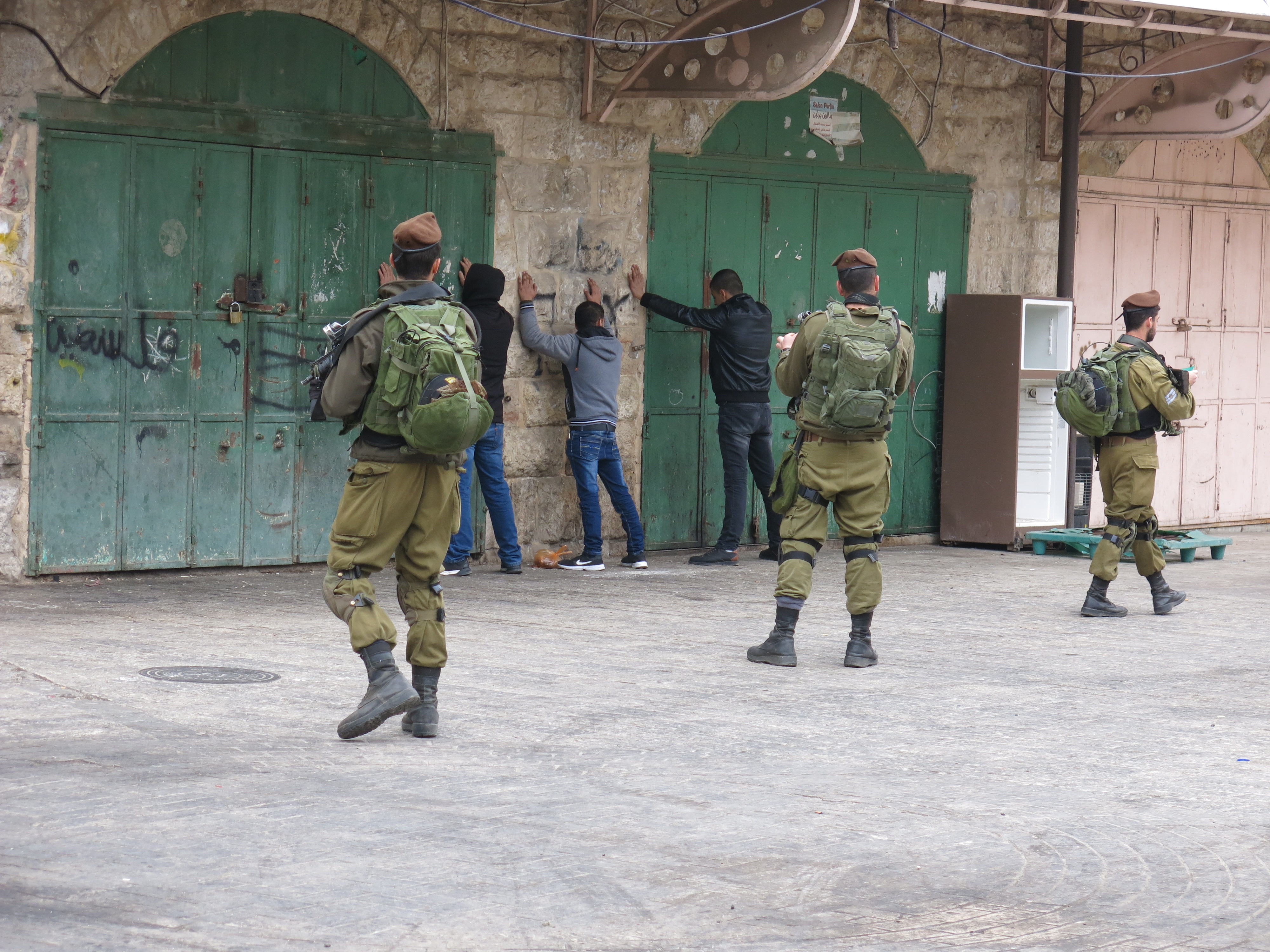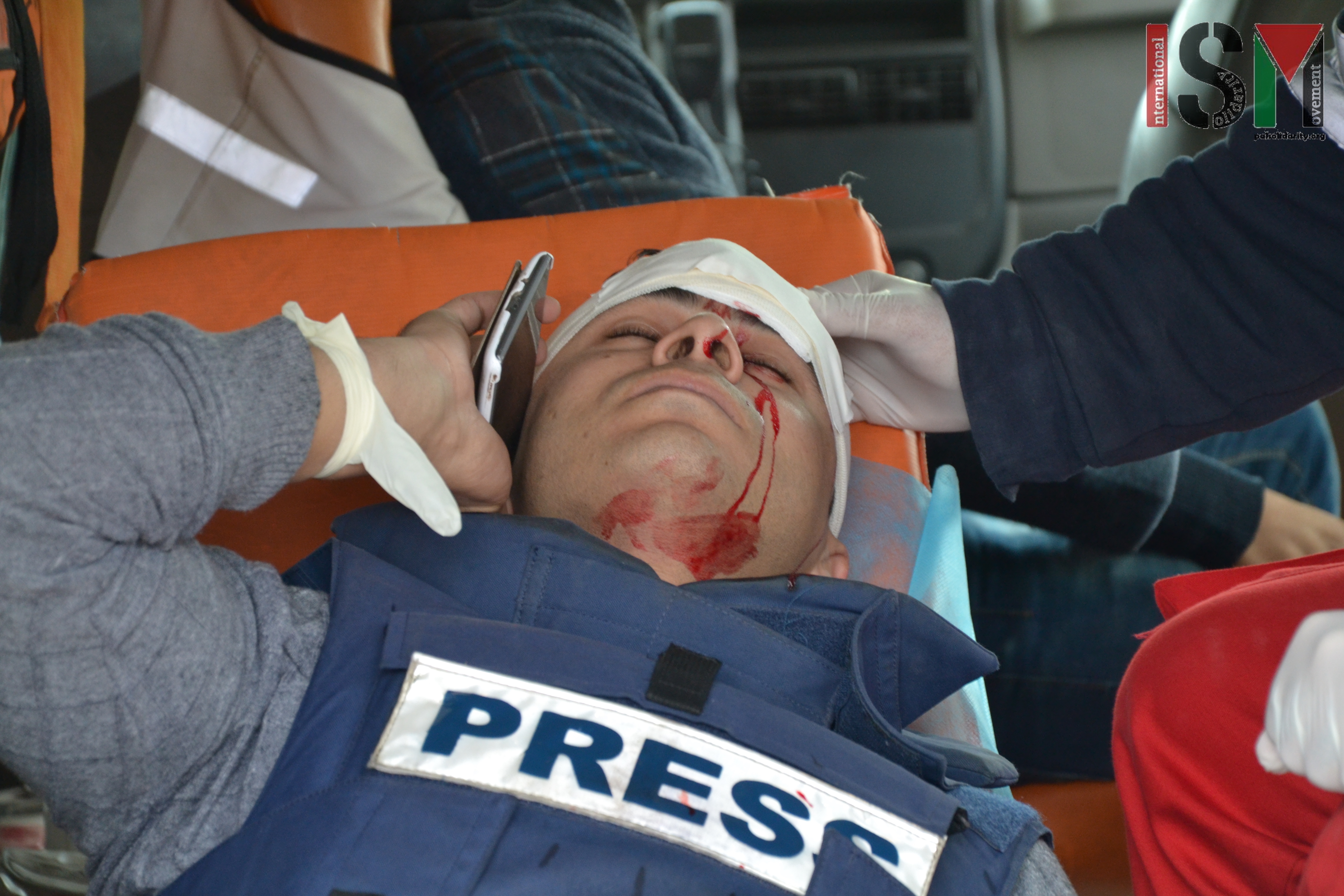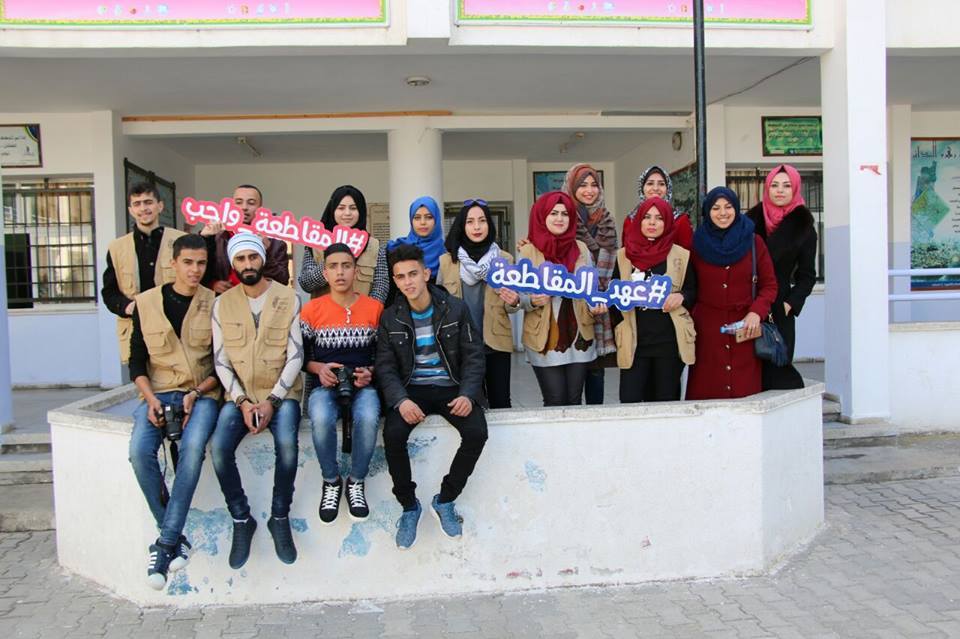Tag: BDS
-
The fire under our feet: a journal piece
I’m OK. Actually, personally, my family and I are well, Alhamdililah! But I can feel the intensified fire under our feet. I know the feeling. And I know the explosion that comes after it. This week alone the Israeli apartheid government has escalated its actions, bombing Gaza daily while tightening the already lethal siege around…
-
Kafr Qaddoum: Israeli forces shoot Palestinian journalist
3th of March, 2017 | Popular Resistance Committee of Kafr Qaddum | Occupied Palestine Today, at the weekly Friday protest in Kafr Qaddoum, a large number of Israeli Forces raided the village and fired large amounts of live ammunition, rubber coated steel bullets, stun grenades and teargas at Palestinian protesters. One journalist, from Palestine TV, was…
-
Awareness campaign to boycotting the Israeli occupation
23rd February 2017 | International Solidarity Movement, Gaza team | Gaza, occupied Palestine The Boycott campaign-Palestine PCB organized an awareness campaign for some Schools in Gaza City in order to raise awareness of the importance of Boycotting the occupation and supporting local products. A number of the boycott-campaign-Palestine activists took part in the campaign by…



